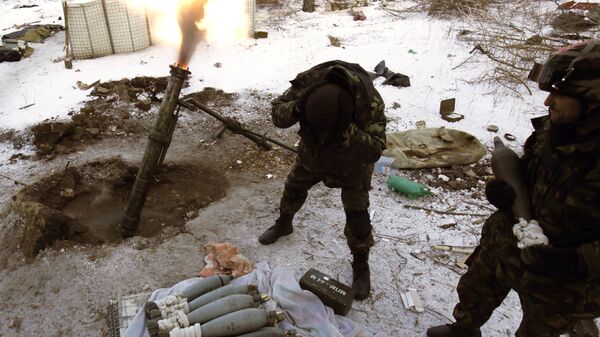"The possibility of withdrawing weapons of less than 100mm caliber is under discussion now, and we are supporting it, we will do our best to help the sides reach an agreement, which could, of course, strengthen their mutual trust," Lavrov said.
The renewed Minsk ceasefire deal, agreed on in February, stipulated that warring parties are to pull out heavy artillery of 100mm caliber or more from the line of engagement to create a buffer zone there.
The Ukrainian armed forces and anti-government militias in the southeast said earlier they had met this requirement. International monitors in the region say the truce is generally holding, though both parties have repeatedly accused each other of carrying out sporadic artillery attacks.
A deputy commander of the self-proclaimed Donetsk People's Republic's militia, Eduard Basurin, told reporters on Thursday that the sides were also considering whether to adopt a batch of provisional instructions that would remove tanks from the battlefront.
The settlement of the Ukrainian crisis will successful if the sides of the conflict are reminded to deliver results under the Minsk agreements, Russian Foreign Minister said Saturday.
"It's important to keep telling them that, to make sure they comply with the agreements," Lavrov told journalists.
Lavrov said that the creation of special groups monitoring the implementation of the points of the Minsk deal was underway. These groups are meant to give the necessary dynamic and stability to the process, according to the minister.
He added it was important all conditions of the Minsk agreements be implemented and strictly adhered to.
In mid-February, the leaders of Russia, France, Germany and Ukraine hammered out a deal in the Belarusian capital of Minsk aimed at ending the military conflict between Kiev forces and the independence supports of eastern Ukraine.
The deal reached in Minsk envisaged a ceasefire, the withdrawal of heavy arms from the line of contact in Donbas, and granting special status to regions of Donetsk and Luhansk.



